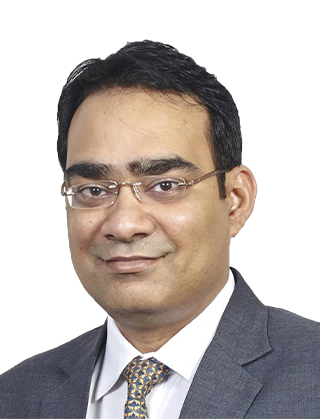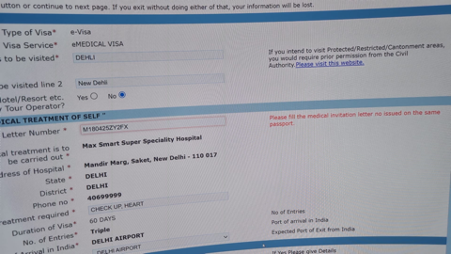About The Doctor
Dr. Samir Parikh is an eminent Psychiatrist and the Director of Department of Mental Health and Behavioural Sciences, Fortis Healthcare. He has done his graduation (MBBS), and Post-graduation (DPM and MD-psychiatry) from Civil hospital, Ahmedabad, and topped the university in both. He is one of the leading academic experts in the field of mental health and conducts training programmes and courses for doctors, Psychologists and allied specialities, and has initiated several awarness campaigns for the community. He is a very well known speaker, due to his expressive communicative style and in-depth knowledge of mental health and Indian culture withcomprehensive experience in the field of clinical and community mental health, he has been a speaker at various national and international forums on mental health issues. Dr. Samir Parikh also has a prominent presence in the media with various columns in newspapers and apresence on television channels and websites.
Specialization
- Mental Health & Behavioral Sciences
Awards
- He has played a key role in enchancing the image of mental health in the country and his views are widely appreciated.
Frequently Asked Questions About Mental Health
What are mental health problems?
Mental health problems include a wide range of experiences: some problems may be quite mild or moderate, while others may take on a more severe form, affecting a person’s ability to cope with day-to-day living. You may have heard about some of the more common problems, such as depression, anxiety, self-harm, eating disorders, schizophrenia, psychosis, stress and bipolar disorder. According to some estimates, 1 person in 4 may have some form of mental health problem in their lifetime. For as many as 1 person in 50, this problem will be serious enough to affect their ability to work or to form and maintain personal relationships. Although figures and definitions vary, what is clear is that millions of people in India will encounter problems themselves, or know someone else who does.
What are the Signs and Symptoms to be considered about?
- Recent social withdrawal and loss of interest in others. An unusual drop in functioning, especially at school or work, such as quitting sports, failing in school, or difficulty performing familiar tasks.
- Problems with concentration, memory, or logical thought and speech that are hard to explain.
- Heightened sensitivity to sights, sounds, smells or touch; avoidance of over-stimulating situations.
- Loss of initiative or desire to participate in any activity; apathy.
- A vague feeling of being disconnected from oneself or one’s surroundings; a sense of unreality.
- Unusual or exaggerated beliefs about personal powers to understand meanings or influence events; illogical or “magical” thinking typical of childhood in an adult.
- Fear or suspiciousness of others or a strong nervous feeling.
- Uncharacteristic, peculiar behavior.
- Dramatic sleep and appetite changes or deterioration in personal hygiene.
- Rapid or dramatic shifts in feelings or “mood swings.”
One or two of these symptoms can’t predict a mental illness. But a person experiencing several together that are causing serious problems in his or her ability to study, work, or relate to others should be seen by a mental health professional. All of these signs can vary in severity. Often they can be relatively minor, or pass quickly. However, if they are particularly severe or distressing, or continue for more than a short while, you may want to seek support.
What causes psychiatric disorders?
Who is susceptible to psychiatric disorders?
Is recovery possible?
Yes. Advancements in medication are continually improving the outlook for people with a mental illness. Along with psychological and social supports, a majority can live active and fulfilled lives.
What are the benefits of taking treatment through MMT instead of directly from the doctor?
We provide services from top doctors across top hospitals to ensure that you get the best treatment.













